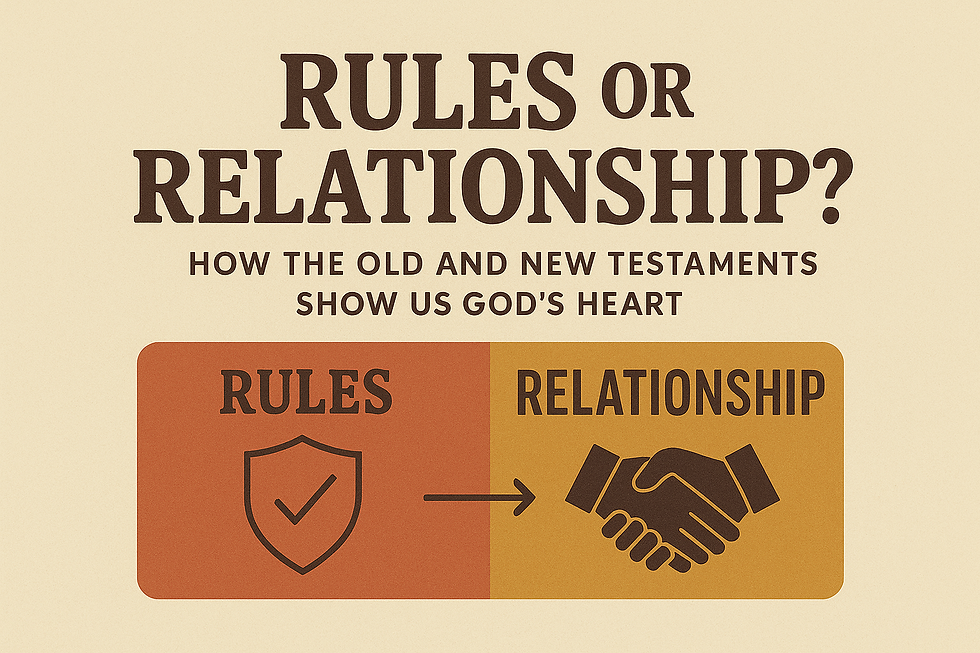Rules or Relationship? How the Old and New Testaments Show Us God’s Heart
- Chris Corradino

- 7 days ago
- 2 min read
Updated: 7 days ago
Have you ever noticed that the more distant a relationship is, the more rules it seems to need?
Think about it: a parent gives rules to a young child because they don’t yet understand the “why.” A workplace sets up thick HR manuals because there’s not always deep trust between employees and management. Rules exist to compensate for a lack of relationship.
This idea runs right through the Bible—from the Old Testament to the New.

Rules in the Old Testament: Guardrails for a Struggling Relationship
When God rescued Israel from slavery in Egypt, He didn’t just set them free and say, “Good luck!”
He gave them the Law at Mount Sinai. These commandments, rituals, and instructions were designed to shape Israel as His chosen people, helping them live differently from the nations around them.
The Law wasn’t meant to be a burden—it was meant to be a gift. But over time, people began to treat the rules as the whole point, rather than as a way of knowing God. The prophets kept reminding Israel that God wanted something deeper than rule-keeping:
“For I desire steadfast love and not sacrifice, the knowledge of God rather than burnt offerings.”
— Hosea 6:6 (ESV)
Rules became guardrails when the relationship wasn’t strong. Where love was missing, law tried to fill the gap.
Relationship in the New Testament: Fulfillment in Christ
Then Jesus came. He didn’t throw out the rules, but He fulfilled them (Matthew 5:17). Suddenly, the focus shifted from external regulation to internal transformation.
Paul puts it this way:
“So then, the law was our guardian until Christ came, in order that we might be justified by faith. But now that faith has come, we are no longer under a guardian.”
— Galatians 3:24–25 (ESV)
In other words, the rules were training wheels. But in Christ, we grow up into a restored relationship with the Father. Now the Holy Spirit writes God’s law on our hearts (Jeremiah 31:33; Hebrews 8:10).
Jesus boiled down the law to two relational commands:
Love God.
Love your neighbor.
Obedience is no longer about fear of breaking rules. It’s about love overflowing from a heart that knows it’s loved.
What This Means for Us
When we find ourselves obsessing over rules—whether religious checklists, performance goals, or “being good enough”—it’s worth asking: Is this coming from relationship or from distance?
Rules alone can restrain behavior, but only love transforms the heart.
Rules show us our need, but only relationship with Jesus fills it.
Rules compensate for lack of intimacy, but grace restores intimacy itself.
In the Old Testament, law stepped in where love was lacking.
In the New Testament, love fulfills the law and frees us to walk with God in relationship.
Bottom line:
God’s goal has always beenrelationship first, rules second.
And in Christ, we discover that His rules aren’t a cage—they’re the fruit of a life rooted in His love.









Comments